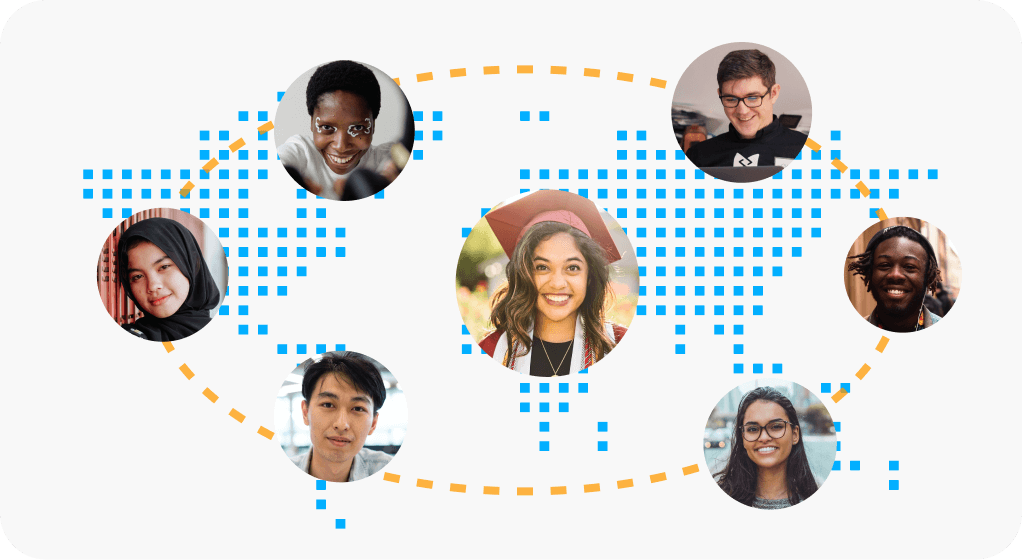
NGOs and nonprofits Industry Overview
NGOs and nonprofits exist to bring relief to situations that the public and private sectors of society have not sufficiently addressed. An NGO (Non-Governmental Organization) is a type of nonprofit. In the United States, the Internal Revenue Service recognizes several types of nonprofit, which is defined as an organization that “commonly performs some type of public or community benefit, without the purpose of making a profit.” Most are exempt from taxation under section 501(c) (3) of the Internal Revenue Code, as charitable organizations. The nonprofit categories recognized by the IRS are charitable or religious organizations, social welfare organizations, labor and agricultural organizations, business leagues, and veterans organizations.
NGO is a term that emerged when the United Nations was formed in 1945, though international organizations had long been working together on a wide range of endeavors. The basic attributes of an NGO are that it is independent from direct government control, does not exist to make a profit, and does not constitute a political party. In general, an NGO is an independent voluntary association of people acting together on a continuous basis, for some common purpose, other than achieving government office, making money or illegal activities.
All NGOs are nonprofits, but not all nonprofits are NGOs. NGOs tend to have a fairly broad mandate, often working to address issues that affect large areas or multiple countries. A nonprofit can be a small local organization. For example, a group that helps the homeless in one particular city. Since the definitions are somewhat fluid, you might find a nonprofit working in multiple countries that doesn’t call itself an NGO. You’ll also encounter the term civil society or civil society organizations to refer to NGOs or nonprofits.
Remote NGO and nonprofit internships can be both a way to make a difference and generative in terms of establishing yourself on a career path. Below, we’ll explore what your remote internship would be like, where you might work, what kind of people are a good fit for this vertical, and how to go about your search. We’ll look at what skills you would need and how to acquire them, some sample postings, and what your future could look like, whether or not you will like to stay on this path.
What will I be Doing as an Intern?
Remote NGO and nonprofit internships take place within a vast range of organizations, but there are a few features that are likely to be included in most. Regardless of the organization’s mission, most require basic office support, which means proficiency in Microsoft Office, along with excellent research and communication skills. Outreach, awareness, fundraising, and making the organization known to policy makers is frequently involved, along with activities such as grant applications. Online presence is as necessary for NGOs and nonprofits as it is in other sectors, and remote interns with multimedia skills would be welcome in most settings. Also perennially in demand are IT skills.
Beyond such basics, your remote NGO or nonprofit internship will be largely informed by the organization’s purpose. For example, a legal aid nonprofit would seek out remote interns studying law as legal research and writing are specific to the legal profession and cannot be learned on an internship. However, another type of organization, for example one that works to build bridges between a given country and the United States via a UN initiative, may have no specific degree requirements, and would allow remote interns to learn about the organization’s mandate on the job.

Some remote NGO and nonprofit internships call for skills in traditional business and finance, such as accounting or management. That’s because even though the organization is nonprofit, it still has to be accountable in terms of how it allocates its resources, including paying staff and employees, and how work is performed. Turning profit is still a goal, even if the money is to be distributed elsewhere. That means administrative tasks, which remote interns are often called upon to perform. Things like entering donor information into a database may seem simple and repetitive, but that’s the kind of work it often takes for operations to run smoothly.
Your remote internship may involve designing programs, coming up with new ideas to reach beneficiaries, or recruiting volunteers. You could help with events and logistics planning, or participate in artistic, educational or counselling activities.
There are many NGOs and nonprofits where you might find a remote internship, from international relief organizations to small local groups with a single office. Where you end up depends on availability, but it also helps to know exactly what skills you have to offer, and what type of NGO or nonprofit interests you the most.
Is this Industry Right for Me?
NGOs and nonprofits are a good place for people who seek meaningful work and want to join in on larger efforts to address collective needs. While a passion for the common good may help you do the work, it’s important to temper idealism with reality. Perhaps especially when working remotely, it can be hard to see the immediate effects of your efforts. nonprofits and NGOs are also chronically underfunded, so compensation is lower than you would earn in comparable roles at mainstream organizations, from remote interns to directors of operations. And despite the fact NGOs and nonprofits are rooted in a spirit of enlightened generosity, they are still subject to the same internal bickering and politics that take place within any work environment. If you can accept such potential pitfalls and still see the value of working together toward a common good, then you may be well suited to a remote NGO or nonprofit internship, and even a career beyond that.
Experiencing a remote NGO or nonprofit internship will help your future employment prospects, even if you end up seeking a different career path. You stand to learn a lot about social, environmental, and/or political issues, which can only broaden your horizons. You’ll explore your own talents in real time, learn what your strengths are, and get a sense of what sort of role you’d like to occupy in the future.

How do I get one?
Qualifying for a remote NGO or nonprofit internship can be approached in a number of ways. It helps to be interested in and knowledgeable about the particular issue the organization you’re applying to is working to address. A knack for organizing group efforts or fundraising will make you a strong candidate in many NGO or nonprofit settings.
Undergraduate or graduate studies in many areas may provide qualifications for a remote NGO or nonprofit internship. Knowing a language other than English helps. Coursework in international relations, geography, and environmental studies, biology, political science, sociology, gender studies, or any subject that addresses human rights or the environment are a good place to start. Medical and law students will find opportunities as remote interns in organizations dedicated to making medical and legal aid accessible.
Certain skills and personal characteristics are very likely to attract nonprofit remote intern recruiters. These include soft skills include the ability to collaborate with diverse groups, both internal and external; genuine authenticity; self-motivation/self-starter attitude; approach to work that is resourceful and innovative; long-tern commitment to and passion for mission-driven work and something called the millennial advantage. This last attribute refers to the increasing desire among young applicants to contribute to meaningful change in the world, along with a spirit of innovation and flexibility.
Desirable hard skills include grant writing and great written communication skills, along with experience in branding and online marketing. Also needed is help to provide direct services such as counseling, teaching, medical care, and community outreach, and many more.
Finally, any skills related to managing revenue will strengthen your remote internship application, as many organizations “now adopt for-profit practices to stay competitive.” Business-related activities such as fundraising, communicating the value of the organization, and managing donor expectations are necessary tasks for most nonprofits.
When it comes to NGOs, There are nine major categories: United Nations, Human Rights, Economic Development, Humanitarian Relief, the Environment, Peacekeeping, International Affairs, Think Tanks, and Data. Look into the categories that interest you and take advantage of the library’s recommended resources and publications for each. Check out examples of 3 of the types below:
United Nations
Under the United Nations, an NGO called the Global Centre for the Responsibility to Protect, or Global R2P, works to implement the UN principle, made official in the UN 2005 World Summit Outcome Document, that world leaders affirmed their responsibility to protect their own populations from genocide, war crimes, ethnic cleansing and crimes against humanity and vowed to support each other in doing so. The desired candidate profile includes:
-
- Undergraduate or graduate studies in international relations, international law, social science, political science or other related fields
- Understanding of the R2P principle and its applications and advantages
- Familiarity with the UN system
- Highly proficient in MS Office (Word, Excel, Outlook, PowerPoint, Access)
- Excellent written and oral communication, research and writing skills
- Fluent in English and proficient in French, Spanish, or other official UN language
The Environment
As an example of a global environmental nonprofit, Wetlands.org works to protect wetlands. They offer internships for the purpose of gaining work experience or academic credit. One intern studied tidal dynamics in a coastal village and made recommendations to the local community. Another studied pulp wood plantations on peatlands and helped devise a protection plan. A remote internship with this type of NGO calls for specified expertise which could only be acquired through undergraduate or graduate studies in the appropriate scientific or technical domain. However, other organizations that work to protect the environment might still have opportunities for support roles that do not require a scientific background.
Humanitarian Relief
For humanitarian relief, Doctors without Borders, which provides much-needed medical aid all over the world, indicates openings for office internships at its New York City headquarters. It’s unclear whether remote work is an option. The organization seeks a systems applications intern, which calls for knowledge of IT ticketing systems, familiarity with Agile methodologies, JIRA or Trello, Power BI, and project management software. A graphic design intern should have knowledge of layouts, typography, line composition, color, and other graphic design basics along with experience in design software. An access intern should have a background in medicine, law, or global health, experience in advocacy, and a desire to work toward greater access to essential medicines worldwide.
Your Cover Letter and Resume
Your remote NGO or nonprofit internship application materials should be tailored to the individual role and the organization. A cover letter for an internship will include a few key functions. State the reason for your letter, and why you are applying to this particular role and organization. Name what skills you can bring to the role. Then describe your top qualifications, such as your education and experience. Give some brief examples showing how your qualifications would make you a great addition to their team. Close the cover letter by restating your interest and the value you would bring, and express interest in an interview.
Remote internship applicants are encouraged to include any experience in the nonprofit sector, including volunteer work. Show a long-term commitment to a single cause or organization and indicate where you were given more responsibility over time. Include leadership roles, even work that took place “behind the scenes” or in any context where you achieved a positive outcome. Include any work or experience with different languages and cultures. Be sure to mention core competencies such as multitasking, showing initiative, social media, and flexibility.

Interview
In preparing for your remote internship interview, try to identify experiences and anecdotes that illustrate your skills and qualifications. Read up on the organization, and make sure you understand as much as possible about the role and how you would approach it from your own unique perspective. Idealist.org advises recruiters to pose certain questions of volunteers, many of which would apply to remote interns. They include naming what it is about the organization that made you want to intern there, what internship or volunteer experiences you’ve had that were good or not so good, and why you believe you’re a good match for the role. A final question has a bit of a twist: “tell me about a time your responsibilities got a little overwhelming and you weren’t able to get everything on your to-do list done. What did you do?” In chronically under-resourced NGO and nonprofit settings, this common problem must often be overcome. Recruiters will listen for your “ability to reflect and grow” and adapt to unexpected situations, rather than any sort of superpower.
Where Do I Apply?
Look for remote NGO and nonprofit internships on CareerUp and trusted employment portals such as Indeed and LinkedIn, and take advantage of resources at your school’s career center and look into internships in human and nature rights, LGBTI rights defense, and youth athletics. Roots offers academic remote nonprofit internships with organizations based in Africa. Look to leading figures in the areas that interest you the most to see which organizations they support and find out if they offer remote internships. Idealist has a list of resources for jobs and internships in the US and around the world. Of course, regular jobs boards like LinkedIn, Glassdoor, and Indeed are always great option!
Current Postings
Here is a sample of what’s out there, taken from postings active as of November 2020.
Communications Intern
Company description: An international NGO providing emergency medical care.
Responsibilities:
-
-
- Develop communications and media strategies
- Contribute to organization’s marketing through social media. public relations, media relations, video and photography
- Interview volunteers, partners, and beneficiaries
- Develop, write, edit and proofread press releases, web stories, blog posts and event scripts
-
Requirements:
-
-
- Major in journalism, public relations, communications, marketing, film/video, social media studies or digital communications
- Practiced and persuasive public speaking skills
- Strong writing skills and savvy about social media
-
Rule of Law Index (Reports) Intern
Company description: A fortune 500 company that will provide a broad range of experience in multiple departments.
Responsibilities:
-
-
- Assist with data collection and analysis for graphical country reports
- Contribute to research, analysis, writing and designing annual reports
- Help with survey creation, management of contributors, management of online data and CRM databases
- Provide administrative and programming support, coordinate logistics
-
Requirements:
-
-
- Undergraduate degree with coursework in international affairs, social sciences, journalism, economics, policy studies, regional studies, law or related subjects
- Proficient in Microsoft Office, experienced with large database management
- Proficiency in a foreign language (especially French, Spanish, Arabic, Russian, or Portuguese)
- Excellent written and oral communication skills
-
What Happens after my Remote Internship?
Despite having a reputation for being strapped for cash, compensation in the NGO and nonprofit sector is highly competitive and, in some areas, higher than in the for-profit sector. However, should you choose to stay in this vertical following your remote internship, you would earn slightly less than you would in the for-profit sector if you specialize in finance, human resources, marketing, advocacy, and education. on the flip side, you stand to earn more if you work in the health/medicare, childcare, and retail industries. Here are some jobs and average annual salary comparisons:
Accounting and finance – For-profit: $73,900 / nonprofit: $65,700
Administrative and clerical – For-profit: $43,500 / nonprofit: 42,100
Event planning – For-profit: $54,200/ nonprofit: $51,400
Childcare – For-profit: $30,900 / nonprofit: $35,500
Health/medical – For-profit: $68,100 / nonprofit: $71,400
Retail – For-profit: $30,000 / nonprofit: $32,200
Development and fundraising – For-profit: $78,800 / nonprofit: $66,500
At the executive level, top nonprofit salaries may run into the tens of millions of dollars. CEOs who are effective at maintaining the organization at optimum levels expect high salaries, and the highest paying of the nonprofit industries is health care. In 2017, the CEO of Banner Health, for example, earned a salary of $21,629,920 and an extra $3,919,724 in additional compensation. The president of Money Management International, which offers debt counselling, earned $11,973,017 as base pay with an additional $1,522,626 in additional compensation.
Your remote NGO or nonprofit internship will open doors for future roles in a variety of settings. Believing in your work and feeling like your work environment suits you personally are also important factors to consider.
What Happens if it Isn’t for Me?
If it turns out that your remote NGO or nonprofit internship leads you toward a different career path, you will likely walk away with a valuable skill set. If you choose to seek employment in the corporate sector, your experience in the NGO and nonprofit fields will be viewed favorably. Your remote internship and any volunteer work will show evidence of valuable soft skills such as leadership, time management, planning, empathy, communication, and professionalism. Principles of giving back to the community are now established in corporate culture, with many large companies investing in philanthropical activities. Your time in the NGO and nonprofit sector will not only help the organization you intern with meet its goals, but also benefit you in future roles, in any sector.





